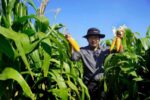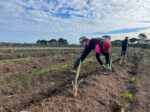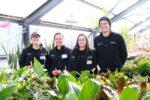Genevieve Muir’s Coast of Gold bursts into Australian market
An Australian brand centred on authentic West African flavours is making massive waves in the premium foods and condiments market, with the official launch of the award-winning Coast of Gold Shito Pepper Sauce range. Arguably the most loved sauce in Ghana, Shito (pronounced Shi-Tow) is a unique blend of hot peppers, herbs, spices and seafood, slow cooked to perfection. Known for its smoky heat and rich flavour profile, it pairs well with a variety of dishes such as rice, grilled meats, vegetables and even snacks. Boldly bursting into the Australian market with Gold and Silver accolades from the 2024 Melbourne Royal Australian Food Awards, Coast of Gold’s Shito Pepper Sauce is now available in a sweet, smoky and spicy Hot variety (Silver award-winner), Medium heat, and via a 100 per cent plant based Mild (Gold award-winner) recipe. The range has also received international acclaim via a Gold Star at the 2024 Guild of Fine Food Awards in the United Kingdom. With all three individual varieties also available in a taster pack and as a value bundle, Shito Pepper Sauce is the hero product of the Coast of Gold brand, which is sold online and delivers nationally and internationally. Rapidly capturing the attention of specialty food stores since its recent launch, the range is also now sold through more than 70 retailers across New South Wales, the ACT, Victoria and Queensland. With plans for rapid wider distribution soon across the nation, Coast of Gold was originally founded during the Covid-19 lockdown period in the home kitchen of Ghana-born Sydneysider, Genevieve Muir. After more than a year of perfecting the recipe via countless test batches made with the input of her family members scattered across the globe – aunties in Ghana, uncles in England, cousins in the Netherlands, the USA, and even […]











